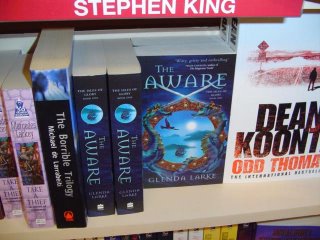Sunday again, so here’s the second “writing tips” blog.
Which or that?
The problem arises when either of these two words is used as a relative pronoun (if you really want to know the name).
{What’s a relative pronoun? Well, it’s a word that introduces a clause and refers to an antecedent. And if you don’t know what the heck that means, it really doesn’t matter, because the examples below make it clear what a relative pronoun is.}
All you have to do is remember one simple rule:
that defines what goes before
which doesn’t, it just gives you a bit more info about what went before.
Look at these 2 examples:
The river, which here is brackish and tidal, is of vital importance to shipping.
The rivers of the region that are tidal are of vital importance to shipping.
In the first sentence, the bit between the commas just gives you more info about the river. It doesn’t tell you which particular river. The writer is assuming you already know what river s/he is talking about.
In the second sentence, the words “that are tidal” actually tell you which rivers we are talking about: the tidal ones. The others are, by inference, not of importance to shipping.
Here are some more examples:
1. The team, which consisted of boys under sixteen, won handsomely.
(Which team won? The one that I was talking about!)
2. The team that consisted of boys under sixteen won handsomely.
(Which team won? The {only} one that consisted of boys under 16!)
3. The team that I bet on won handsomely.
(Which team won? The {only} one that I bet on!)
4. The team, which I bet on, won handsomely.
(Which team won? The one that I was talking about!)
The above 2 sets of sentences are all grammatically correct, but the sentences in each set don’t mean the same thing.
In sentence 1, you already know which team I am talking about. Then I give you more info – they are under-16 boys.
In sentence 2, you don’t know what team I am taking about , so I have to tell you: it’s the one with the under-16 boys.
In sentence 3, I am defining the team – it was the one I bet on.
In sentence 4, you already know what team – but I am giving you more info.
Note the commas in the which sentences, and the lack of them in the that sentences. Why? Because in sentences 2 & 3, the subject of the verb is the whole shebang.…(The team that I bet on…)and you can’t divide it up with commas and cut it off from its verb. Don’t try.
Look at this sentence:
There will be a split in the Labour Party over this war, comparable to the split in the Liberal Party that occurred on the question of taxation, which everyone seems to have forgotten.
More complex, but the same principles still apply.
In this case, “that occurred on the question of taxation” defines the split in the Liberal Party.
“which everyone seems to have forgotten” is just extra info about the split in the Liberal Party.
Note that the sentence could be organised a different way:
There will be a split in the Labour Party over this war, comparable to the split in the Liberal Party, which everyone seems to have forgotten, that occurred on the question of taxation.
I wouldn’t advise this rewording. The “that” clause is separated out from the words that it defines, which is never a good idea if you can avoid it!
Easy, huh?
 The Aware in good company. Pix by Russell Kirkpatrick
The Aware in good company. Pix by Russell Kirkpatrick



